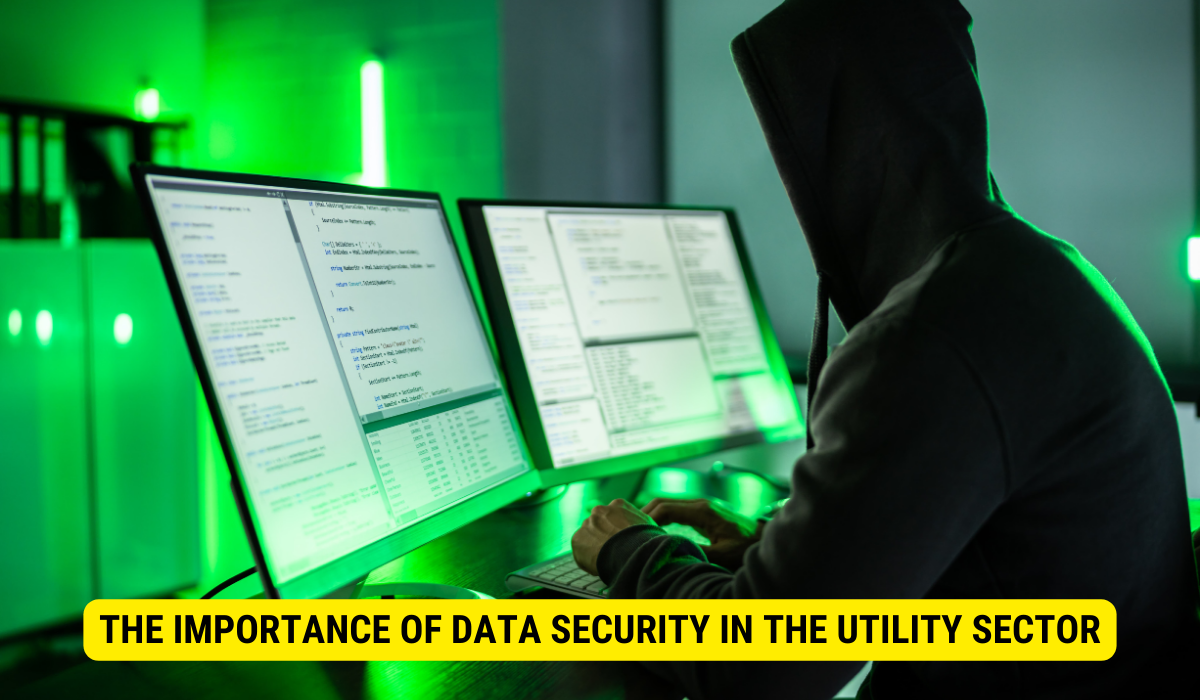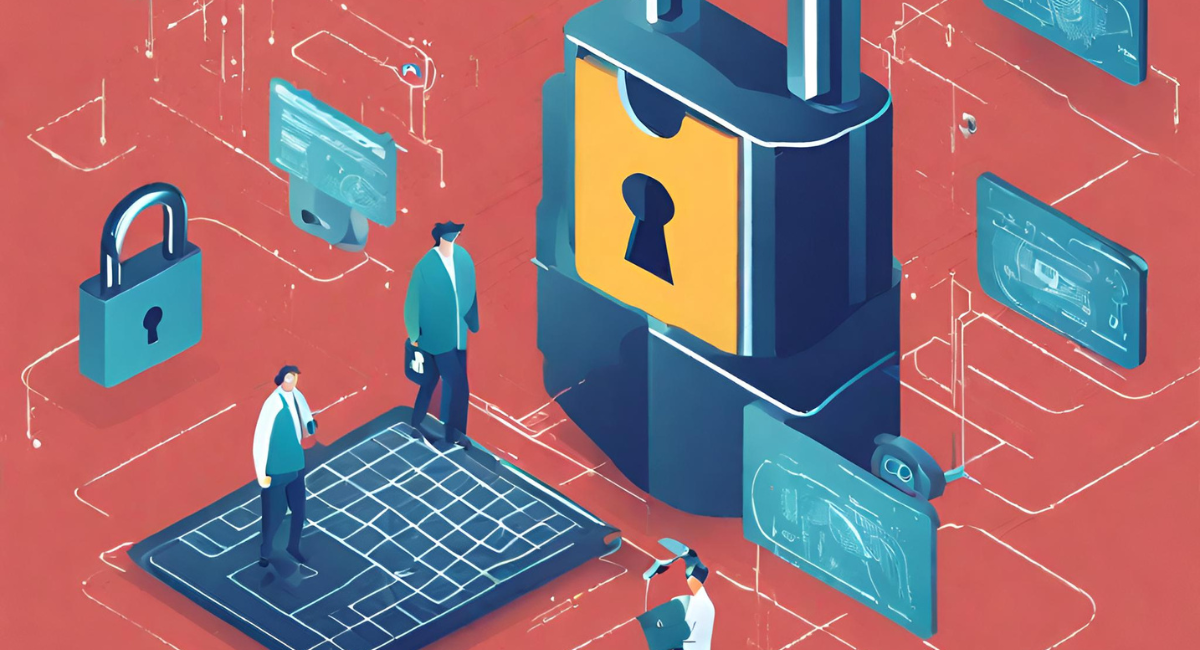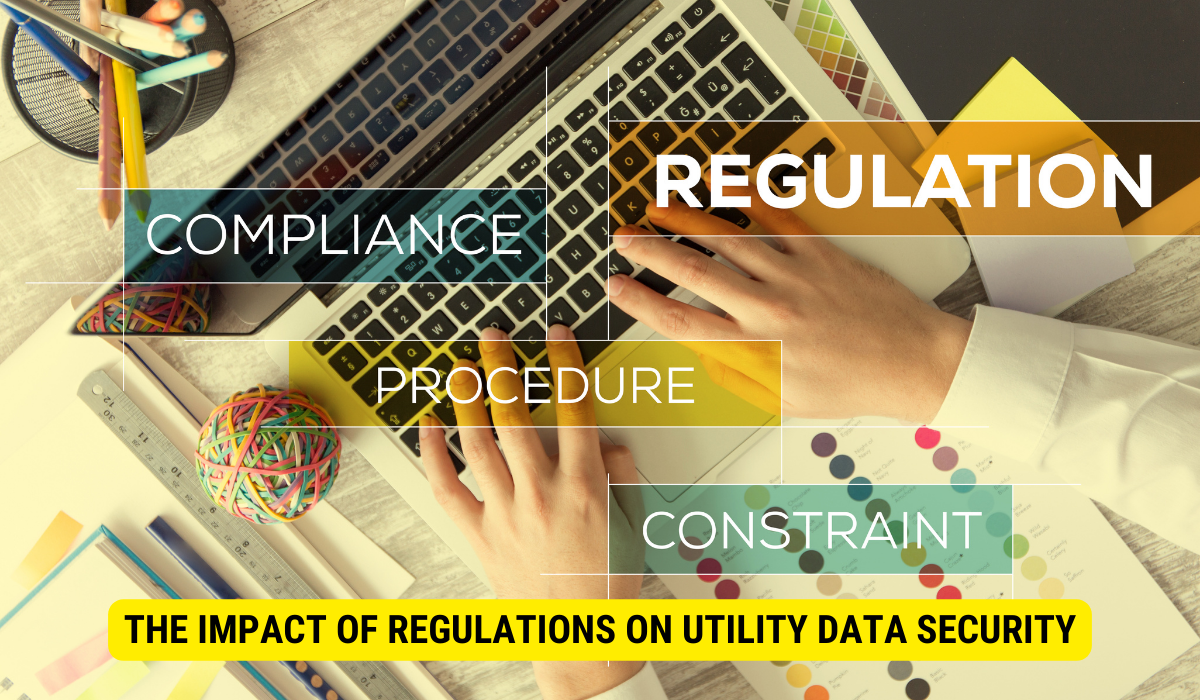Utilities employ various security measures to protect their data, including advanced encryption techniques, multi-factor authentication, physical security protocols, firewalls, intrusion detection systems, and regular security audits.
The importance of data security in the utility sector cannot be overstated. Utilities, such as electricity, water, and gas providers, rely heavily on the integrity and confidentiality of their data to ensure smooth operations and provide uninterrupted services to their customers. In today’s interconnected world, where cyber threats are prevalent, safeguarding utility data has become a top priority for utility companies and regulatory authorities.
The Importance of Data Security in the Utility Sector
Utility companies handle vast amounts of sensitive data, including customer, operational, and system control information. This data is indispensable for the efficient functioning of the utilities and plays a crucial role in resource planning, infrastructure management, and service delivery. Any unauthorized access, alteration, or disclosure of this data can have severe consequences, including service disruptions, financial losses, and potential hazards to public safety.
Ensuring data security in the utility sector is of utmost importance. Utility companies must implement robust security measures to protect their data from risks and threats. These measures include advanced encryption techniques, multi-factor authentication, and regular security audits. By prioritizing data security, utility companies can safeguard their operations and uphold the trust of their customers.
The Role of Data in Utility Operations
Data is the lifeblood of utility operations, driving decision-making processes, ensuring reliable service delivery, and optimizing resource allocation. It provides valuable insights into customer usage patterns, consumption trends, and infrastructure performance. Utility operators use this data to monitor and control essential services’ production, transmission, and distribution, ensuring efficient and sustainable operations.
For example, data analytics allows utility companies to identify peak usage periods and allocate resources accordingly. They can predict future demand by analyzing historical data and adjusting their operations to meet customer needs. This proactive approach improves customer satisfaction and helps utility companies optimize resource allocation, reducing costs and improving overall efficiency.
Potential Risks and Threats to Utility Data
Given the critical nature of utility data, it is vulnerable to various risks and threats. Cyberattacks, including ransomware, phishing, and denial-of-service attacks, can compromise data integrity, disrupt operations, and lead to substantial financial and reputational damage. Physical risks, such as theft, unauthorized access to control rooms, and natural disasters, pose significant threats to utility infrastructure and the data it holds.
To mitigate these risks, utility companies must implement a comprehensive security strategy. This strategy should include regular employee training on cybersecurity best practices, robust network monitoring systems, and disaster recovery plans. By being proactive and prepared, utility companies can minimize potential threats’ impact and ensure their operations’ continuity.
Furthermore, collaboration between utility companies and government agencies is crucial in addressing emerging threats and developing effective countermeasures. Sharing information and best practices can help strengthen the overall security posture of the utility sector and protect critical infrastructure from evolving cyber threats.
In conclusion, data security is of paramount importance in the utility sector. Utility companies must invest in robust security measures to protect their data from cyberattacks, physical risks, and other threats. By prioritizing data security, utility companies can ensure the reliable delivery of essential services, maintain customer trust, and contribute to the overall resilience of the utility sector.
Overview of Common Security Measures in Utilities
In response to the escalating threats to utility data, utility companies have adopted a multifaceted approach to data security. This approach encompasses physical and digital security measures designed to mitigate specific risks and protect sensitive information.
As utility companies recognize the critical importance of data security, they have implemented a wide range of measures to protect their infrastructure and assets. These measures go beyond the basic security protocols and involve comprehensive strategies that address the unique challenges faced by the utility sector.
Physical Security Measures
Physical security measures aim to safeguard the physical infrastructure and prevent unauthorized access to key facilities and critical assets. This involves implementing strict access controls, surveillance systems, and secure storage facilities to protect equipment, servers, and control rooms.
One common physical security measure utility companies utilize is installing biometric access control systems. These systems use exclusive physical characteristics, such as fingerprints or iris patterns, to grant access only to authorized personnel. This ensures that only individuals with the proper credentials can enter restricted areas.
Furthermore, utility companies often employ 24/7 security personnel trained to monitor and respond to suspicious activities. These security personnel are equipped with advanced surveillance technologies, including CCTV cameras and motion sensors, to detect and deter potential threats.
In addition to access controls and surveillance systems, utility companies invest in secure storage facilities. These facilities are designed with reinforced walls, advanced locking mechanisms, and fire suppression systems to protect critical equipment and sensitive data from physical damage or theft.
Comprehensive employee training programs are another crucial aspect of physical security measures in utilities. These programs instruct employees about the importance of maintaining a secure working environment and provide them with the knowledge and skills to identify and report any security breaches or suspicious activities.
Digital Security Measures
Digital security measures are focused on protecting utility data from unauthorized access and ensuring data integrity. Encryption techniques play a vital role in safeguarding the data during transmission and storage. Encoding the data using cryptographic algorithms renders it useless to unauthorized users even if they manage to intercept it.
Utility companies employ encryption methods, such as Advanced Encryption Standard (AES), to protect sensitive data. AES is a widely recognized encryption algorithm that provides a high level of security and is resistant to cryptographic attacks.
In addition to encryption, utility companies implement robust firewalls and intrusion detection systems (IDS) to prevent unauthorized network access. Firewalls act as a barrier between the utility company’s internal network and the external Internet, filtering out potentially harmful traffic and blocking unauthorized users from gaining access.
On the other hand, IDS continuously monitors network traffic and detects any suspicious activities or potential security breaches. These systems use innovative algorithms and machine learning techniques to analyze network behavior and identify patterns that may indicate a cyber attack.
Additionally, utility firms frequently carry out vulnerability evaluations and penetration tests to pinpoint and remedy gaps in their cyber defense mechanisms. These tests mimic actual cyber threats to gauge the strength of current security protocols and highlight potential enhancements.
To ensure the ongoing effectiveness of their digital security measures, utility companies also prioritize employee training and awareness programs. These programs educate employees about the latest cyber threats and provide them with the knowledge and skills to detect and respond to potential security incidents.
In conclusion, utility companies have implemented comprehensive security measures to protect their infrastructure, assets, and sensitive data. These measures encompass physical and digital security, including strict access controls, surveillance systems, encryption techniques, firewalls, intrusion detection systems, and employee training programs. By adopting a multifaceted approach to data security, utility companies are better equipped to mitigate risks and safeguard their operations from evolving threats.
In-depth Look at Encryption Techniques
Encryption is a core component of data security in utilities. It involves transforming data into an unreadable format using encryption algorithms, making it only accessible to authorized users with the appropriate decryption keys. Various encryption techniques are employed in the utility sector, including symmetric encryption, asymmetric encryption, and hashing algorithms.
Understanding Encryption
Symmetric encryption uses a single key for both the encryption and decryption processes. This type of encryption is efficient for large amounts of data but requires securely distributing the encryption key to all authorized parties.
The Role of Encryption in Data Protection

Encryption provides a robust layer of protection for utility data as it safeguards sensitive information from unauthorized access. In the event of a data breach, encrypted data remains incomprehensible, reducing the potential impact on utility operations and customer privacy. Encryption also helps utility companies comply with data protection regulations and ensures the confidentiality and integrity of customer data.
The Use of Firewalls and Intrusion Detection Systems
Firewalls and intrusion detection systems (IDS) are essential to a comprehensive digital security infrastructure. They work in tandem to identify and prevent unauthorized access, monitor network traffic, and respond to security incidents in real-time.
The Function of Firewalls
Firewalls are a barrier between internal and external networks, such as the Internet. By analyzing incoming and outgoing network traffic, firewalls can determine whether to allow or block specific data packets based on predefined security rules. This helps prevent unauthorized access and the spread of malware, ensuring the integrity of utility systems.
Intrusion Detection Systems Explained
Intrusion detection systems monitor network activity for signs of unauthorized access, malicious activities, or policy violations. They use various detection methods, including signature and anomaly-based, to identify potential threats and generate alerts. IDS enables prompt incident response, reducing the danger of data breaches and minimizing the impact on utility operations.
The Impact of Regulations on Utility Data Security
Recognizing the criticality of utility data and the potential risks associated with its compromise, regulatory authorities have introduced stringent regulations to ensure data security and protect consumer interests.
Key Regulations Affecting Data Security
Regulations such as the North American Electric Reliability Corporation (NERC) Critical Infrastructure Protection (CIP) standards and the European Union’s General Data Protection Regulation (GDPR) require utility companies to implement robust security measures and adhere to strict data protection practices. These regulations set guidelines for data encryption, access controls, incident response planning, and ongoing monitoring to ensure the security and privacy of utility data.
Compliance Challenges and Solutions
Compliance with data security regulations presents challenges for utility companies, including resource constraints, technical complexities, and evolving threat landscapes. However, overcoming these challenges is essential to avoid penalties, maintain consumer trust, and uphold the reliability and resilience of utility systems. Utility companies can navigate the compliance landscape and ensure safe data handling by leveraging advanced security technologies, conducting regular audits, and fostering a culture of security awareness.
Key Takeaways
- Utility companies handle vast amounts of sensitive data, making data security paramount to prevent service disruptions, financial losses, and potential hazards.
- Utilities employ advanced encryption techniques to ensure the confidentiality and integrity of their data.
- Tangible security solutions, like biometric entry systems, monitoring equipment, and safeguarded storage areas, are vital for protecting utility facilities.
- Digital measures, including firewalls and intrusion detection systems, prevent unauthorized digital access and cyber threats.
- Regulatory compliance is vital for utility companies, ensuring adherence to strict data protection practices and promoting consumer trust.
FAQs
Why is data security crucial for utility companies?
Data security is vital for utility companies to ensure smooth operations, deliver uninterrupted services to their customers, and maintain the trust of stakeholders and regulatory bodies.
What is the role of encryption in safeguarding utility data?
Encryption transforms data into an unreadable format, ensuring that even if unauthorized individuals access the data, they cannot decipher or misuse it.
How do firewalls enhance utility data protection?
Firewalls act as barriers between internal and external networks, scrutinizing incoming and outgoing traffic based on predetermined security rules, thereby preventing unauthorized access.
Why are intrusion detection systems essential for utilities?
Intrusion detection systems continuously monitor network activity, recognizing signs of unauthorized access or malicious activities and enabling immediate response to security incidents.
How do regulations impact utility data security?
Regulations, such as NERC CIP standards and GDPR, set guidelines for utility companies to implement stringent security measures, ensuring data protection and consumer privacy.
Conclusion
In conclusion, understanding utilities’ security measures to protect data is crucial in today’s digital landscape. The utility sector relies on secure data to ensure the provision of essential services and maintain infrastructure integrity. By implementing a comprehensive approach encompassing physical and digital security measures, encryption techniques, firewalls, intrusion detection systems, and regulatory compliance, utility companies can safeguard their data from potential threats and ensure uninterrupted service delivery.
